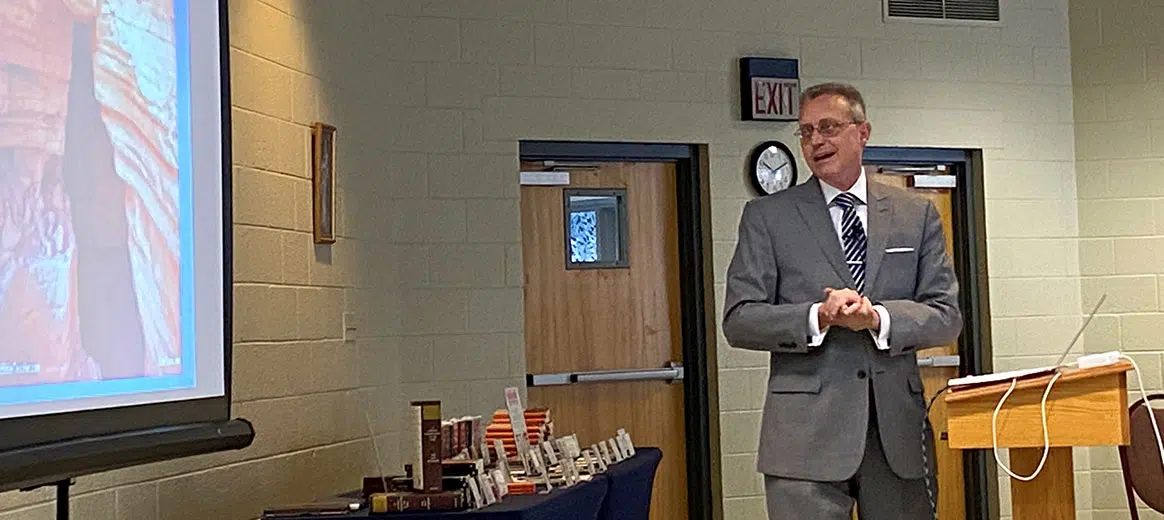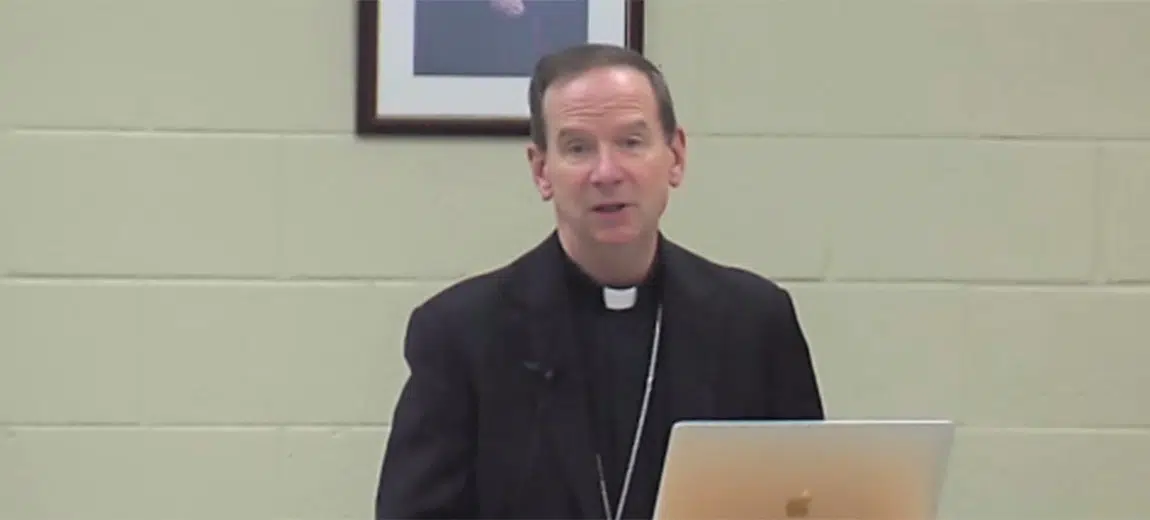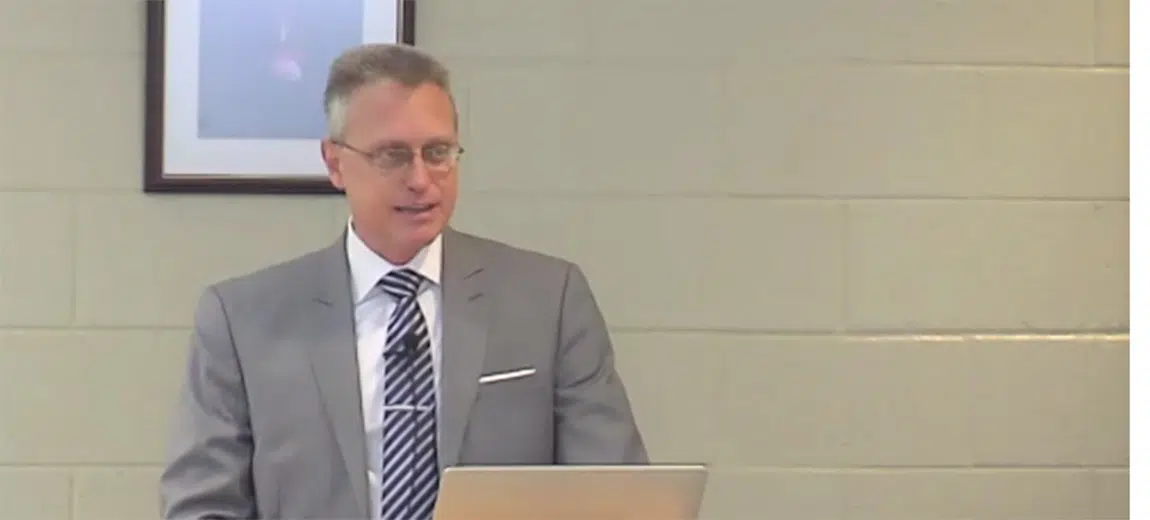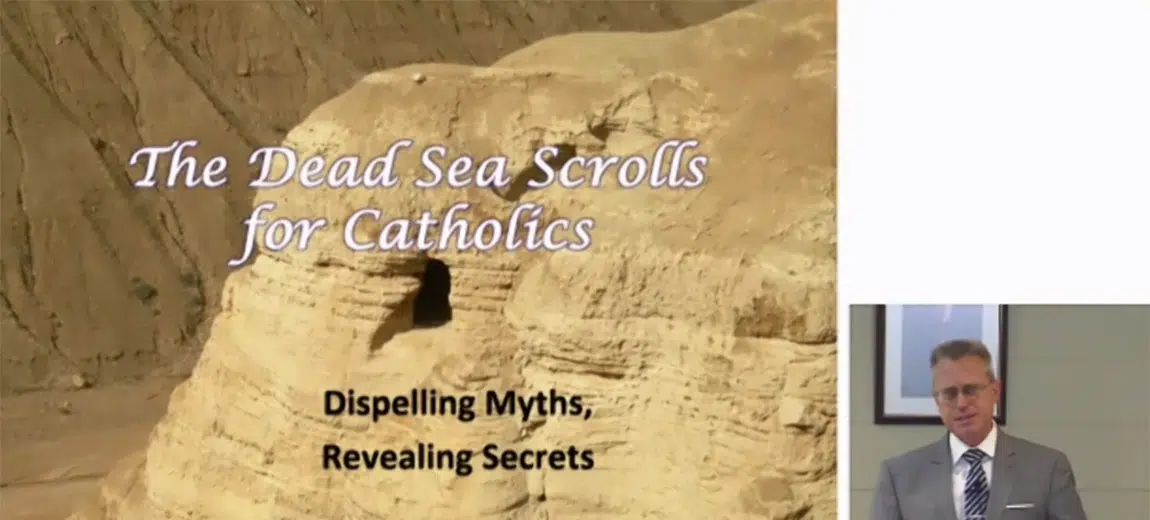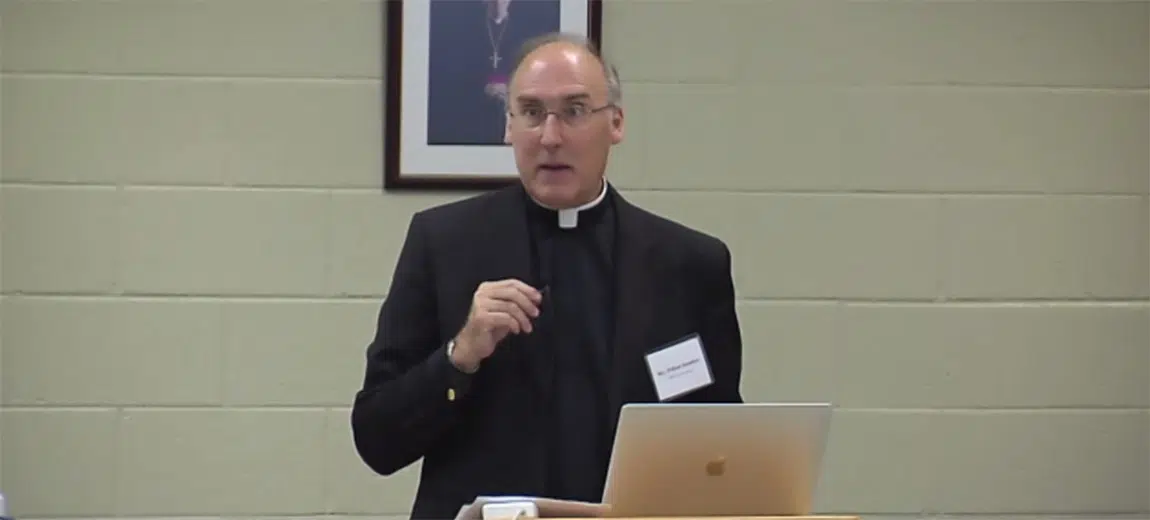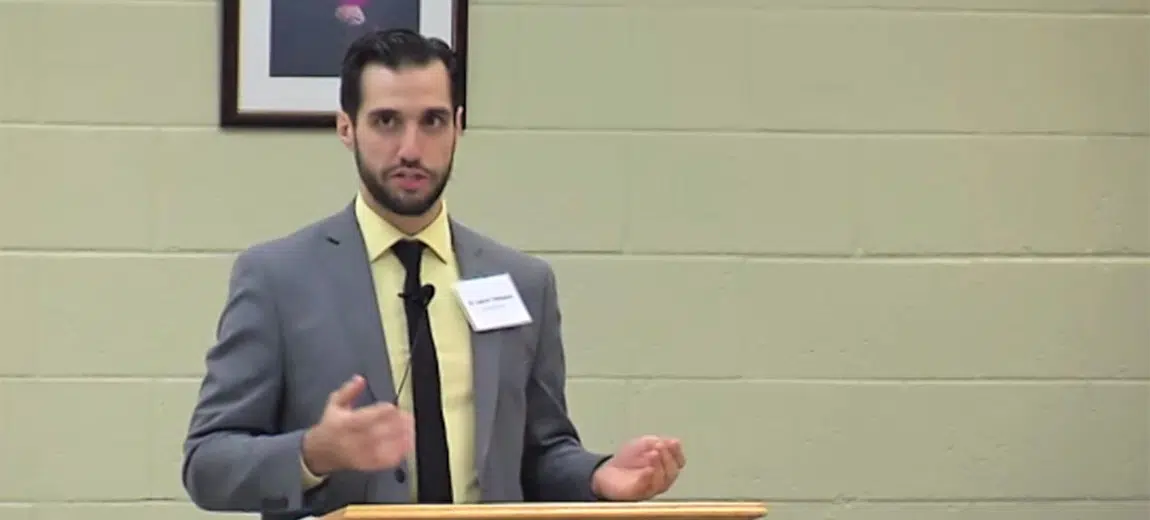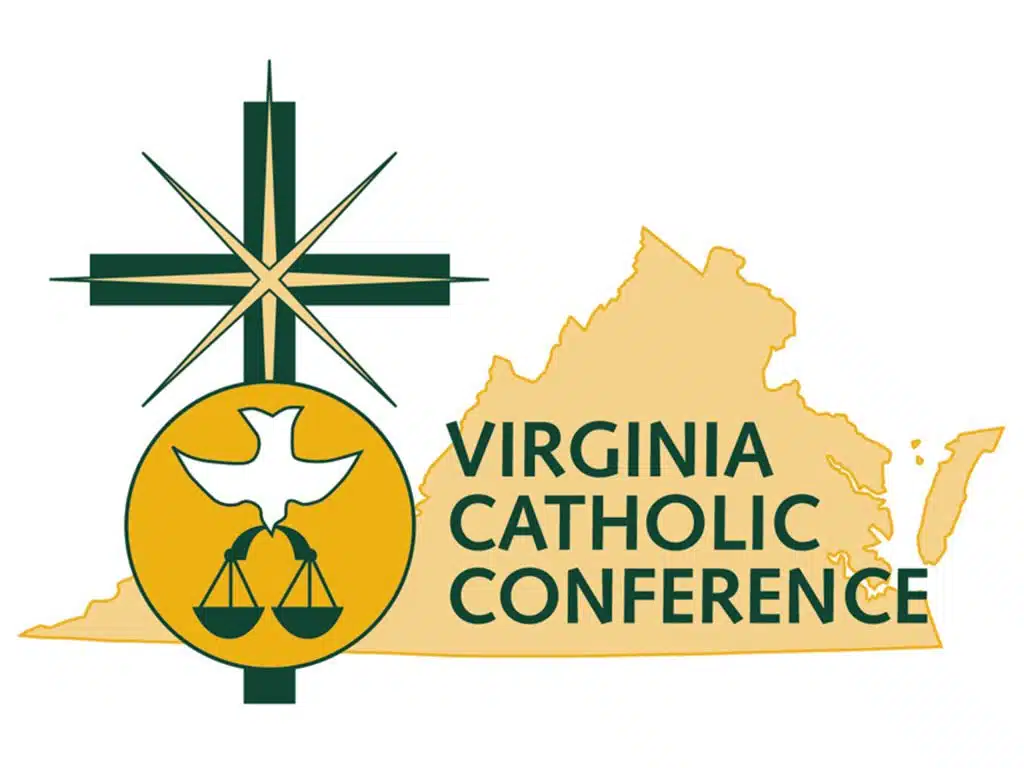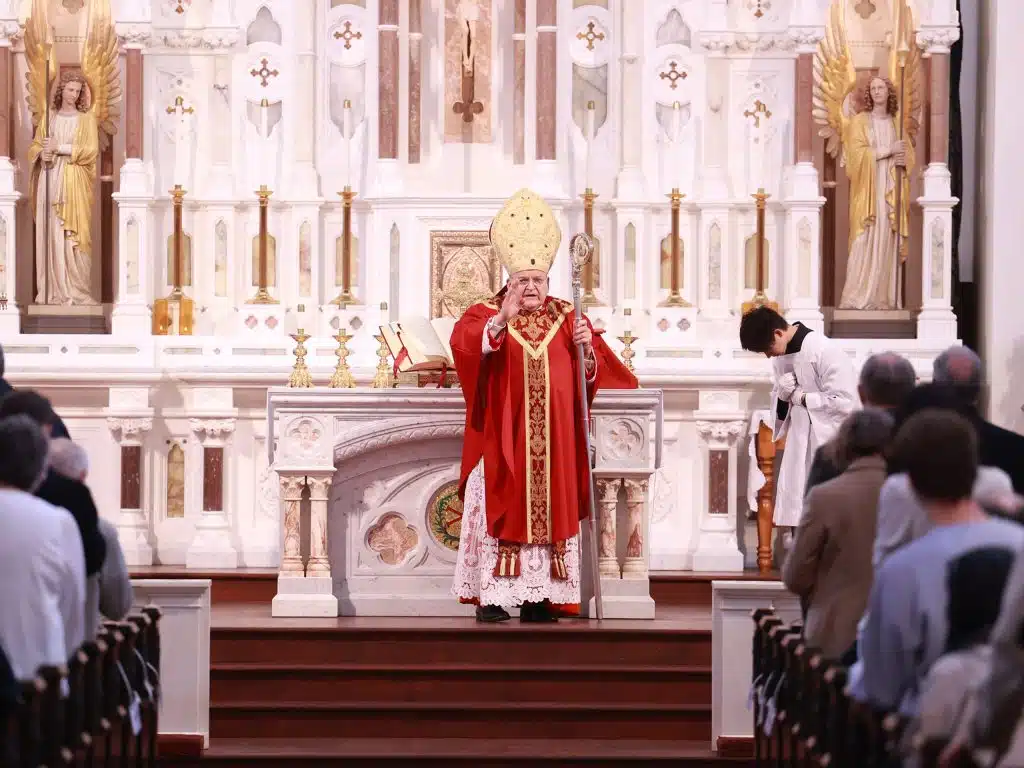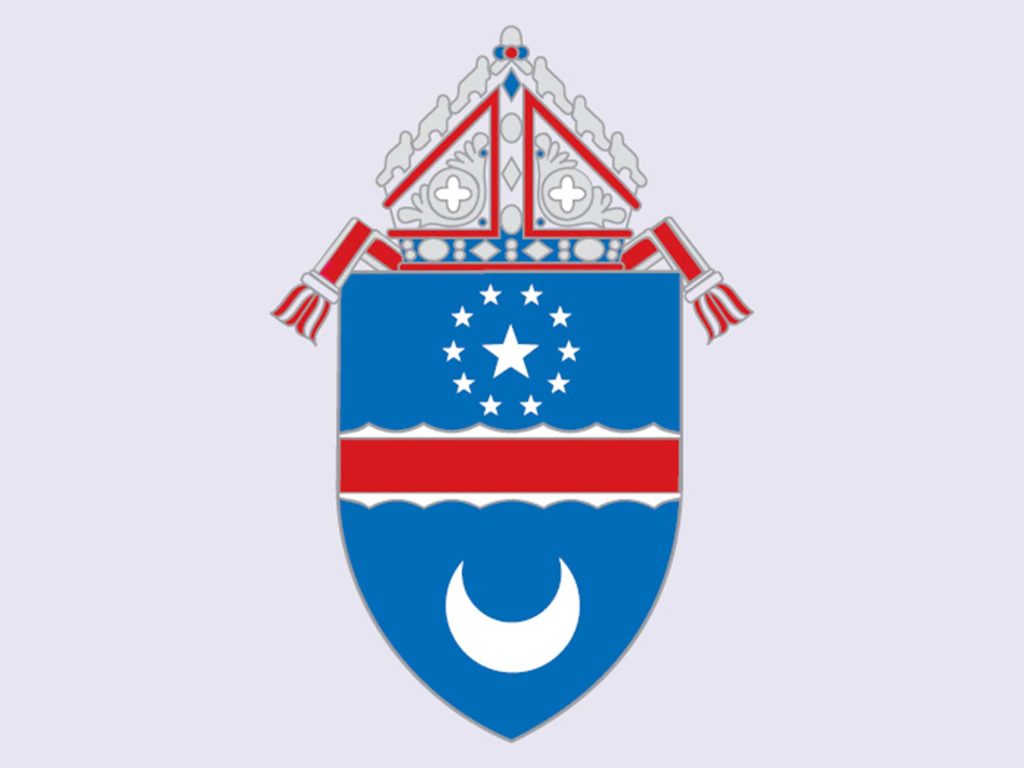Despite the sensational and controversial way the Dead Sea Scrolls are sometimes presented in the media, the scrolls found in 1946 and 1947 in caves east of Jerusalem have given biblical scholars valuable details about the world in Jesus’ time, and “do a lot to reaffirm our Christian and Catholic faith,” said John Bergsma, professor of theology at the Franciscan University of Steubenville, in Ohio, who spoke at the diocesan Catechetical Conference Nov. 21.
About 150 catechists and directors of religious education from across the diocese — 65 in person at St. Agnes Church in Arlington and 85 online via a Zoom webinar — attended the annual conference, held in a much-abridged version this year due to COVID-19 restrictions.
Father William P. Saunders, pastor of St. Agnes Church and episcopal vicar of faith formation, welcomed attendees in the parish hall after Mass, and noted that for catechists, the pandemic has made religious education “more of a family experience and a virtual experience,” which he said presents “a great challenge and also a great opportunity.”
Bishop Michael F. Burbidge greeted the group and expressed “deep appreciation for the way you share your gifts, and the creativity you’ve shown in this uncertain age and by your very example.”
He said catechists must “offer a witness of joyful hope” because “so many people are despairing right now, feeling alone and afraid. The burdens and pressures are getting to them,” he added. But “we cannot be despairing, we have to lift them up and be strong in that joyful hope … because of who we are and what we believe.”
Bishop Burbidge told catechists, “I’m praying that you are renewed in your hope. And you will only be able to do that to the extent that you’re paying attention to your own spiritual lives and making it a priority to be in the presence of the One who gives us hope. We need you for the long haul.”
Bergsma said the Dead Sea Scrolls “have been called the most important archaeological find of the 20th century, but most Catholics don’t know much more about them than what shows up occasionally in supermarket tabloids.” He aimed to remedy that in two morning sessions on the scrolls and on the Gospel of John.
He called the Dead Sea Scrolls “mind-blowing” because they are “the only physical documents we have” today that date to the time of Jesus. “There is no question that these scrolls are authentic, and they give us a window into the world of Our Lord and the early church,” said Bergsma, a former Protestant pastor and convert to Catholicism, who has authored many books on Scripture and the Catholic faith.
Bergsma said before the scrolls were discovered, some believed that the Gospel of John was “largely fictitious,” because it differs in details from the other Gospels, and contains what were believed to be Christian ideas many saw as anachronistic because they didn’t fit what was known about Jewish life during Jesus’ time.
But the scrolls have changed that, he said, describing how they were found by Bedouin shepherds, hidden in jars in several caves near the north shore of the Dead Sea. The jars were buried for 2,000 years in bat guano, which helped preserve them..
The caves of Qumran are near the ruins of the monastery of a group of Jewish ascetics called the Essenes. Separate from either of the two better-known Jewish sects, the Pharisees and the Sadducees, the Essenes believed prophecies that the appearance of the Messiah was imminent. While many religions have monasteries, until the discovery of the scrolls, “we were not aware Judaism had a monastic movement,” Bergsma said.
The scrolls, scattered in many jars across several small caves, contained many types of writings, he said. About 25 percent of the material was books of the Hebrew Bible, and 75 percent was other writings from the monastery, including law books, discussions of ethics, liturgical calendars and rules for the community, similar to St. Benedict’s famous monastic rule, he said.
“The writer of the Gospel of John writes and thinks very similarly to (the language of) the Dead Sea Scrolls,” which not only provides strong evidence to critics that the Gospel is historically authentic, but helps shed light on many references and details that had biblical scholars scratching their heads, he added.
In light of this new understanding, John’s meaning becomes very clear. “The power that Jesus unleashes through these great signs is still with us today through the sacraments,” Bergsma said. “The sacraments are the way that we enter into the kingdom of God.”
One of the online attendees, Princess McEvilley, director of religious education at St. Joseph Church in Alexandria, said during the lunch break that she found the presentations “absolutely wonderful. There are so many aspects of the faith the need to be dug into a little deeper.”
McEvilley, who’s been teaching religious ed classes over Zoom, said she appreciated the fact that the diocesan Office of Faith Formation made this year’s conference accessible online, so more catechists could participate, even if they couldn’t attend in person for health reasons. “Some people are going out and taking that risk, but I’m not willing to take that risk,” she said.
In the afternoon, Andrew Montanaro, a professor of scripture at Notre Dame Graduate School of Christendom College in Front Royal, spoke about the church as the kingdom of God, and its implications for Christians living in the world today.
